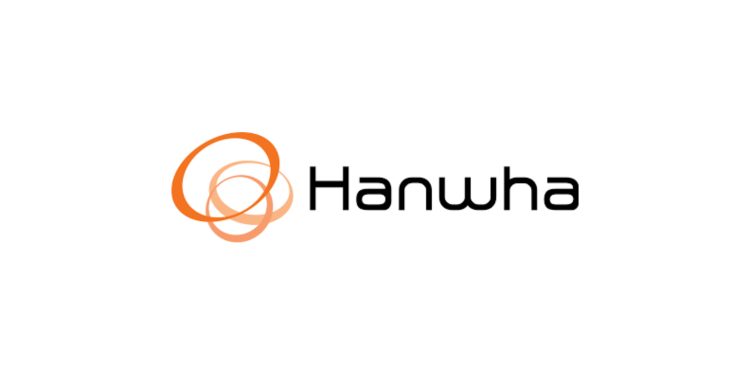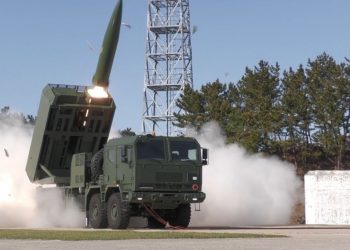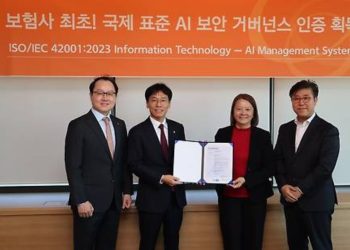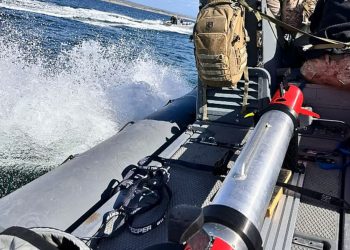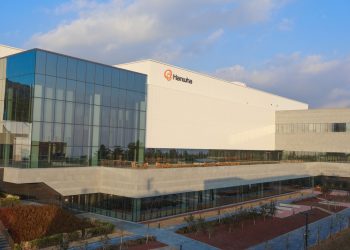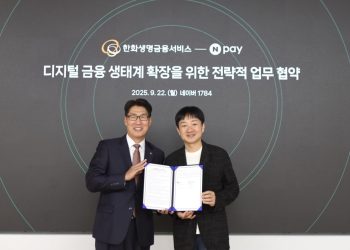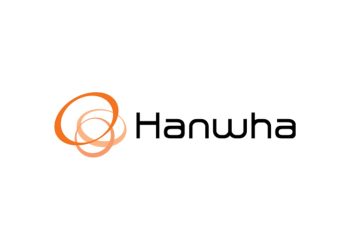A strategic collaboration advancing Korea’s maritime decarbonization and global clean-tech leadership
Four affiliates of Hanwha Group — Hanwha Power Systems, Hanwha Ocean, Hanwha Aerospace, and Hanwha Systems — have signed a memorandum of understanding (MOU) with global shipping company HMM and classification society Korean Register (KR) to jointly develop and test next-generation carbon-free propulsion systems for vessels.
This collaboration brings together expertise across shipbuilding, maritime logistics, and advanced clean-energy technologies. The goal is to accelerate the development and commercialization of sustainable propulsion systems that can drastically cut emissions from ocean-going vessels — a key challenge in the global energy transition.
“The integrated propulsion system that combines fuel cells and ammonia gas turbines will set a new standard for maritime decarbonization,” said Hyoung-seog Kim, Head of the Maritime Solutions Business Division at Hanwha Power Systems. “We will continue to expand collaboration with shipowners, shipyards, and classification societies to apply our technology to actual vessels and move toward commercial operations.”
Focus on Next-Generation Propulsion Technologies
Under the MOU, the partners will jointly design, analyze, and evaluate two core propulsion concepts aimed at achieving zero emissions at sea:
- Ammonia-based Gas Turbine + Fuel Cell System for large 7,000–8,000 TEU-class container vessels.
- Fuel Cell + Battery Hybrid System for smaller 2,000 TEU-class feeder ships.
These solutions aim to replace fossil-fuel propulsion with ammonia, a hydrogen-based energy carrier that produces no carbon dioxide when burned. The inclusion of fuel cells and battery systems is expected to improve efficiency, reduce operational costs, and ensure compliance with tightening global emissions standards.
Building on Hanwha’s Technological Momentum
The agreement builds on Hanwha Power Systems’ recent milestone — securing Approval in Principle (AiP) from the American Bureau of Shipping (ABS) for its proposal to retrofit 174K LNG carriers with ammonia-based gas turbine propulsion technology.
This earlier recognition provides a foundation for scaling up carbon-free systems, combining Hanwha’s aerospace-grade turbine expertise with its growing presence in marine clean-energy solutions. The new MOU reflects Hanwha’s ambition to bridge land-based turbine innovation with maritime decarbonization efforts.
Clear Division of Roles to Accelerate Commercialization
Each partner brings specialized expertise to the collaboration, ensuring efficient development and validation:
- Hanwha Group: Leads the design and development of integrated propulsion systems, leveraging its clean-energy and shipbuilding technologies.
- HMM: Provides operational data and vessel performance insights to support real-world testing and validation.
- Korean Register (KR): Oversees early-stage risk and safety evaluations, regulatory consultations, and economic feasibility assessments, while guiding the Approval in Principle (AiP) and certification processes.
“This project is an exemplary cooperation model where the shipping, shipbuilding, and classification sectors establish safety and regulatory standards from the early research stage,” said Kyu-jin Yeon, Senior Vice President of KR. “It will contribute to building an international certification framework for eco-friendly vessels.”
Industry Impact: A Strategic Step Toward Decarbonization
For HMM, one of the world’s leading container carriers, the partnership represents a strategic response to the maritime sector’s shift toward decarbonization.
“Through demonstration and commercialization, we will accelerate the transition to a future eco-friendly fleet,” said Min-kang Kim, Head of the Maritime Office at HMM.
This collaboration aligns closely with the International Maritime Organization’s (IMO) 2050 carbon neutrality goals, which require the shipping industry to reduce greenhouse gas emissions by at least 50% compared to 2008 levels. With international regulations tightening, shipowners and builders face mounting pressure to adopt zero-emission propulsion systems within the next decade.
Strengthening Korea’s Global Competitiveness
By integrating efforts across the shipping, shipbuilding, and classification sectors, the partnership positions South Korea as a frontrunner in maritime decarbonization. The development and testing of carbon-free propulsion systems are expected to:
- Enhance Korea’s shipbuilding competitiveness in the growing market for eco-friendly vessels.
- Boost the country’s clean-tech exports by offering scalable, certified zero-carbon propulsion solutions.
- Support global energy transition goals, reducing dependency on fossil fuels in international trade routes.
This collaborative model also illustrates Korea’s broader industrial approach — leveraging inter-company synergies and government-backed green policies to drive technological transformation in high-impact sectors like shipping.
Outlook: From Demonstration to Deployment
The partners intend to continue their collaboration beyond the prototype and testing phases, focusing on scaling and integrating these propulsion systems into commercial vessels. Successful demonstration could lead to wider industry adoption and establish new global standards for carbon-free shipping.
If proven commercially viable, Hanwha’s ammonia-based propulsion systems could become a key export technology, reinforcing South Korea’s influence in the global shift toward sustainable maritime operations.

